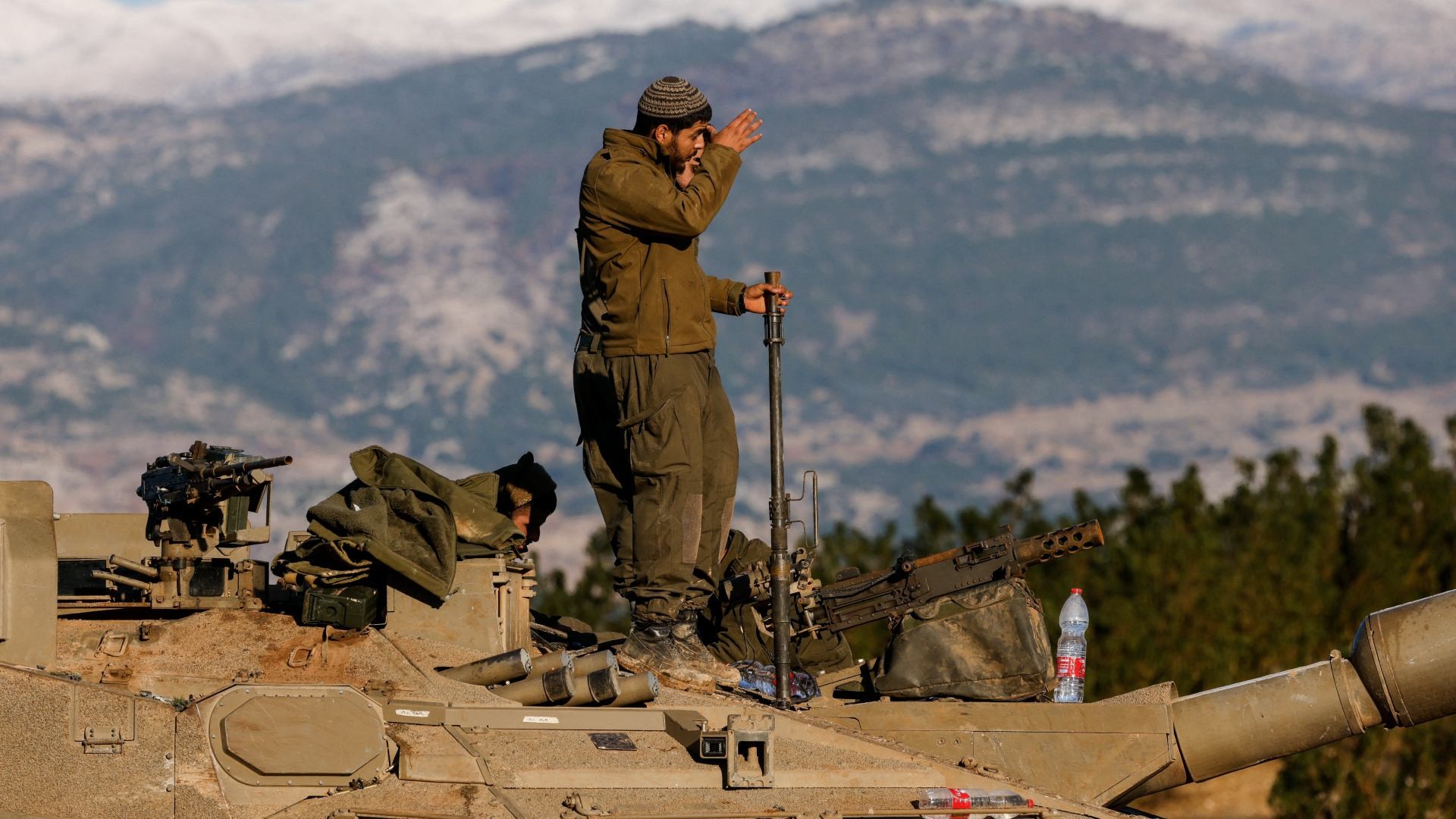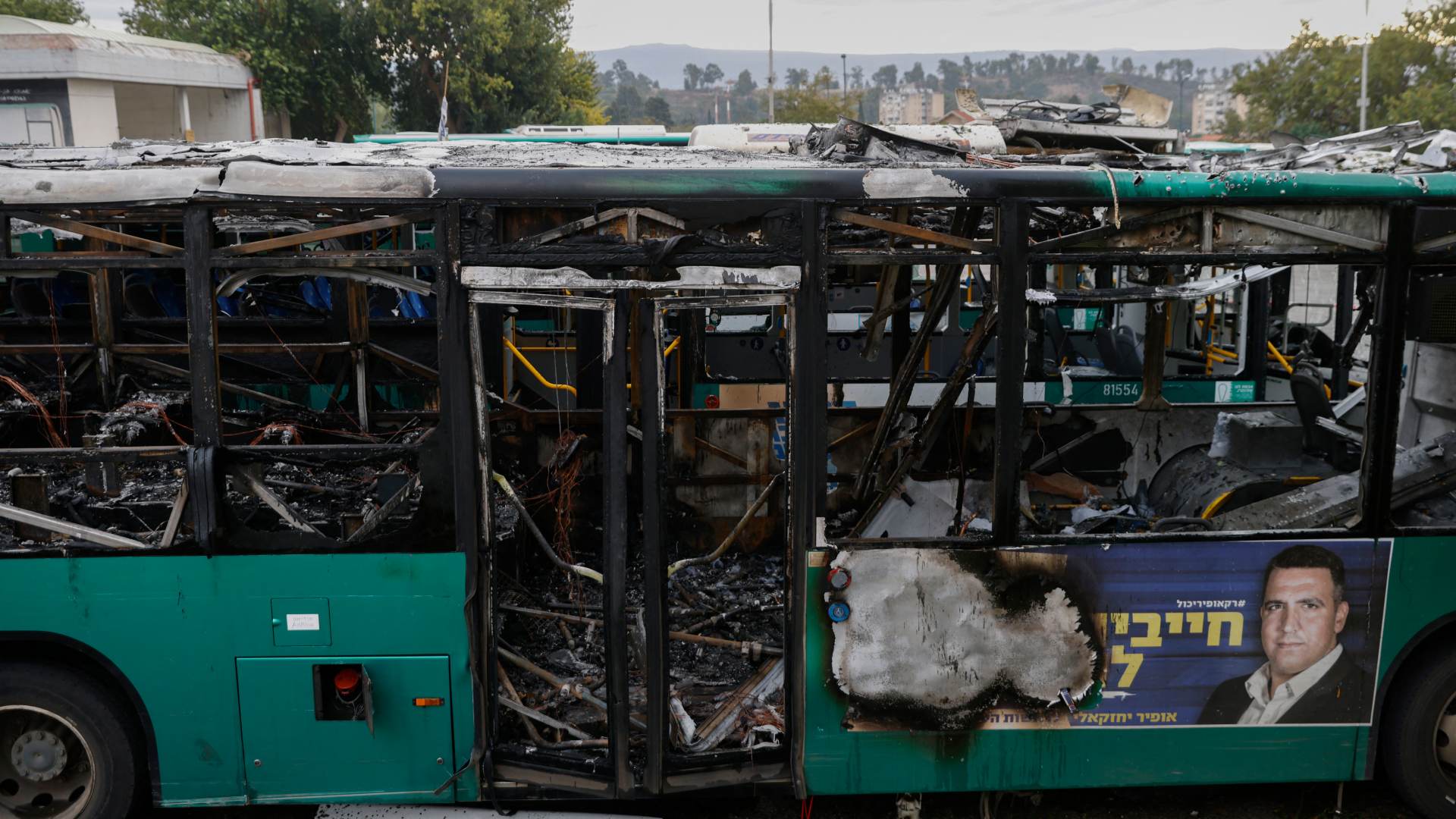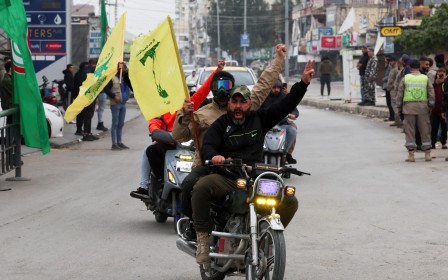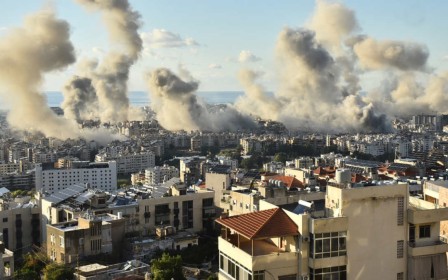'Why is Hezbollah celebrating?' Israelis unconvinced by ceasefire agreement

Despite ending more than a year of fighting along the Lebanese border, there is no sense of victory in Israel following Wednesday's ceasefire with Hezbollah.
Displaced Israelis say they do not feel safe to return to their homes, political opponents and allies of Israeli Prime Minister Benjamin Netanyahu have denounced the deal as weak, and many have been left wondering what happened to the total victory promised by the prime minister.
Speaking on national television on Tuesday evening, Netanyahu tried to sell the agreement to the Israeli public.
But most were left unconvinced, questioning whether it amounted to a temporary pause in fighting or a more permanent end to hostilities - and wondering how long it would take for Hezbollah to regroup and re-arm.
Israeli political analyst Meron Rapaport told Middle East Eye that confusion and disappointment in Israel over the Hezbollah deal in part reflected the government’s failure to deliver the decisive outcome it had promised in a conflict which has enjoyed widespread popular support.
New MEE newsletter: Jerusalem Dispatch
Sign up to get the latest insights and analysis on Israel-Palestine, alongside Turkey Unpacked and other MEE newsletters
“[Defence Minister] Israel Katz just ten days ago said that the goal is to disarm Hezbollah and that there will be a buffer zone. That is what they told us, and clearly, that is not happening. It is a very big gap,” Rapoport said.
But he said the deal also reflected differences between the government and the country’s traditional security establishment over how the wars in Gaza and Lebanon were being fought.
While the latter favoured the fight against Hezbollah, Netanyahu and his allies remain committed to the war in Gaza and the goal of ethnic cleansing in the north of the enclave, Rapaport suggested.
“The Lebanon war was a war of the centre-left and the army in particular and not for the right. This was a war of the old elites,” he said.
“The new elites are interested in Gaza, so it was easy for Netanyahu to give up on Lebanon and concentrate on Gaza,” Rapaport added.
But Ameer Makhoul, an Israeli human rights activist, told MEE that it remained questionable whether Netanyahu is committed to a lasting ceasefire with Hezbollah.
He suggested that the deal may amount to a short-term truce, with Netanyahu biding his time in expectation of a more supportive US administration under Donald Trump when he takes over in January, allowing some respite to Israeli forces exhausted by waging war on multiple fronts.
“It seems as though he is talking about a 60-day truce rather than an end to the war, viewing it as a waiting period for Trump,” said Makhoul.
“This might be the first rational decision acknowledging the limits of power and acknowledging that the army is exhausted, overburdened, and placing a heavy strain on soldiers, especially on the reserve forces.”
'An agreement on ice'
Members of Netanyahu’s far-right coalition were quick to distance themselves from the deal.
“This agreement does not meet the goal of the war - to return the residents of the north safely home,” said Itamar Ben-Gvir, the security minister and leader of the Jewish Power party.
“An agreement with the Lebanese army is an agreement on ice. The Lebanese army does not have the authority at all, and certainly not the ability, to overcome Hezbollah.
“We have already seen that we must not rely on anyone but ourselves…. In the end, we will have to return to Lebanon again. This is a historic mistake.”
Sharp criticism also came from Yoav Gallant, the former defence minister who was sacked by Netanyahu earlier this month. Both men were this week the subjects of arrest warrants for war crimes charges issued by the International Criminal Court.
Gallant said: “In the Middle East, words, declarations, and even written agreements have no meaning - the future of the north and the security of its residents will be determined by only one thing: the determination of the Israeli government to direct the security apparatus to vigorously attack any attempt by Hezbollah to violate it immediately."
Opposition leader Yair Lapid said that the government’s priority should be negotiating a deal for the release of hostages held by Hamas in Gaza since October 2023.
"The greatest disaster in our history happened during Netanyahu's tenure. No agreement with Hezbollah will erase the lawlessness. We need to urgently make a deal… to bring home the citizens who were abandoned," Lapid said.
Benny Gantz, another opposition figure who quit Netanyahu’s war cabinet in June but has backed the wars in Gaza and Lebanon, said: "You must not do half-hearted work."
Not going back
Meanwhile, residents of towns and villages in northern Israel have said they remain fearful about returning to their homes, with many saying they prefer to stay where they are for now.
Yifat Elmalich, a mother of three from Kiryat Shmona, where a bus station was hit by Hezbollah rockets overnight on Wednesday, told the Ynet news website: “We don’t want to go back to a life of constant fear… This agreement feels weak and not in our favour… For now, we’re leaning toward staying put. Our house was damaged by shrapnel, and we still don’t feel fully safe in the city."
Hofit Mor, a mother of four from Moshav Kfar Yuval, said: "I’m against the agreement. It feels like it’s bringing us back to square one, to where we were before the war… After seeing the disaster in the Gaza border region, we realised the danger we were living in. Under these conditions, I’m not going back."
Up to 70,000 residents have been evacuated from northern Israel since October 2023, after Hezbollah stepped up rocket attacks in response to Israel’s assault against Hamas in Gaza.
The mayor of one northern town, Kiryat Shmona, vividly captured their frustration with the deal in comments on Facebook ahead of the ceasefire deal's announcement.
Posting a video of people in Lebanon celebrating the imminent deal, Avihay Shtern wrote: “You promised us a complete victory, so how is it that Hezbollah is celebrating?”
Middle East Eye delivers independent and unrivalled coverage and analysis of the Middle East, North Africa and beyond. To learn more about republishing this content and the associated fees, please fill out this form. More about MEE can be found here.





